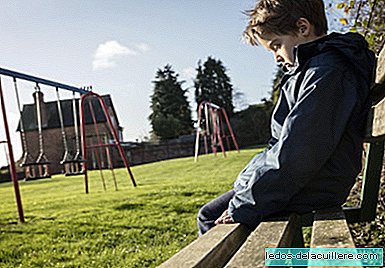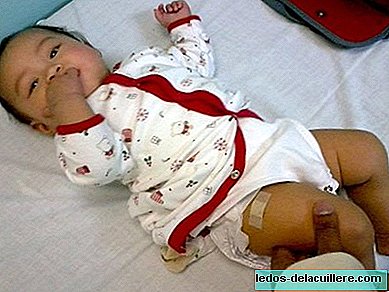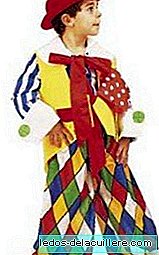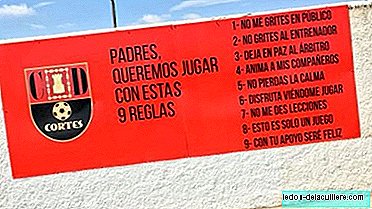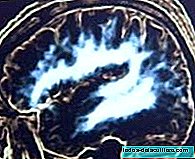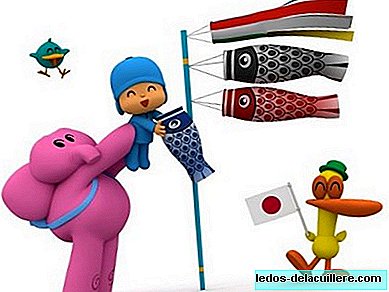
I find out thanks to Pocoyo that Children's Day is celebrated today in Japan, a curious and colorful tradition that I can't resist to tell you.
It is one of the most important celebrations for the Japanese, since children are entertained and the virtues that will serve them to face life are praised.
In different parts of all of Japan, they rise to heaven carp fish-shaped pennants, of different colors and shapes, one for each family member. This indicates that in that house there is a child and the fish wave in his honor.
But not only on the balconies of homes these curious goldfish are placed, which can reach considerable sizes, also in bars, in parks, in boats ... anywhere is good to honor the little ones.

There is a popular belief in Japan that a carp climbs the waterfall and becomes a dragon. So the tent is a kind of symbol of health and strength, the perseverance of swimming against the current, so that in this celebration this myth moves to the desire for the health and strength of children.
Kodomo-no-hi is a national holiday in Japan that is commemorated every May 5, since 1948, with the aim of celebrating children's happiness. Formerly, on this day only boys were celebrated, but, as it could not be less, this celebration also extends to girls, even if they have a specific date, the Hinamatsuri (March 3).
The origin of this practice dates back to the Edo period (1600-1868), in which families with children under the age of seven adorned their homes with a flag with the family emblem, being subsequently replaced by the koinobori, which is the original name of these Traditional Japanese flags with carp fish shape.
There is usually a black fish on the top that represents the father and a fish is happening for each child, being the size that represents the age of each child, and they are of different colors, which makes them more colorful. I'm left with the doubt, doesn't the mother appear in this symbolism?
In addition to the koinobori flags, it is also customary for families with children to display reproductions of samurai military clothing or the traditional Japanese helmet, the kabuto, for being a symbol of a strong and healthy male child. There is also a special menu to enjoy as a family this day.
In short, we join the children's day in Japan and we wish, not only to the Japanese children but to all the children of the world who have the best virtues and who successfully overcome the difficulties of their future life.


